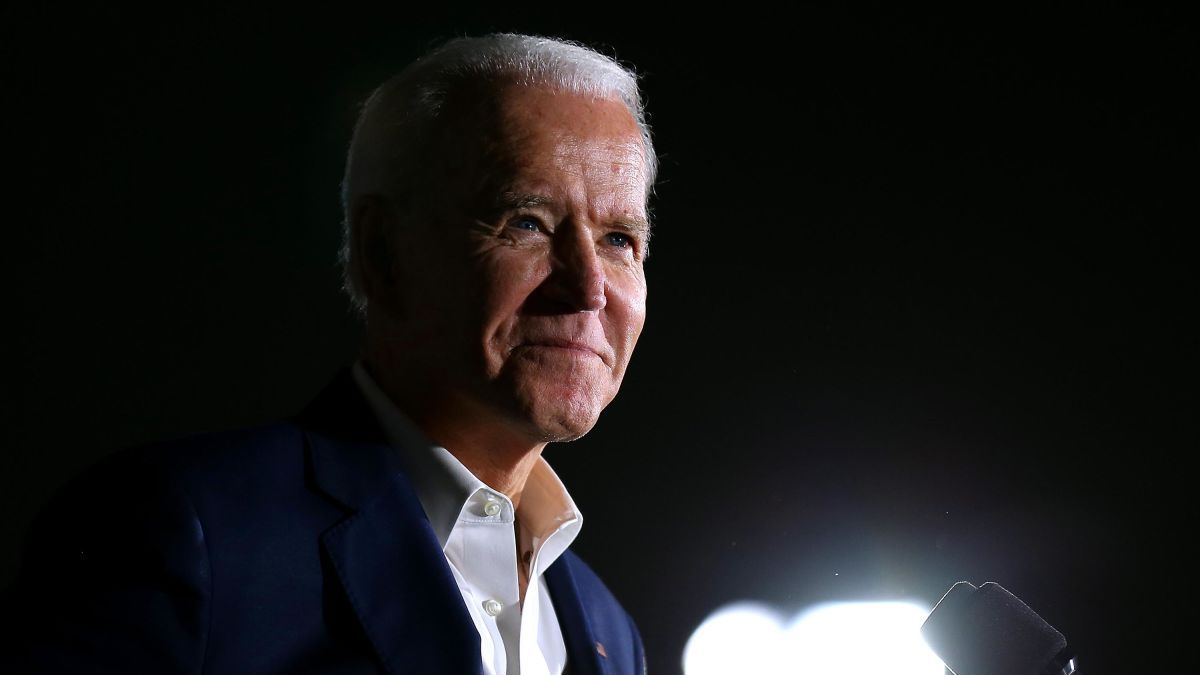Biden has secured enough delegates for the Democratic nomination. What happens next?

A few minutes every morning is all you need.
Stay up to date on the world's Headlines and Human Stories. It's fun, it's factual, it's fluff-free.
Tuesday, June 2, was the second largest day of the 2020 presidential primary season, with seven states and Washington, DC voting. Amid the ongoing COVID-19 pandemic and nationwide protests against police violence, what would have normally been a major story was mostly buried – Joe Biden officially secured enough delegates to claim the Democratic Party’s nomination.
The former vice president’s ascendancy to the nomination had been all but assured since his main competitor, Vermont Senator Bernie Sanders, dropped out in April and endorsed Biden. Nonetheless, left-wing supporters of Sanders have continued to insist that Biden should drop out and allow the nomination to go to a candidate, like Sanders, with a more progressive agenda.
While that is unlikely to happen, Biden’s official acceptance of the Democratic nomination is still more than two months away.
Biden secures the delegates
The June 2 primary is sometimes referred to as “Super Junesday,” a nod to “Super Tuesday,” the day in March that has the most state primaries (14), as well as the American Samoa caucus and Democrats Abroad primary. Super Junesday was originally scheduled to have eight state primaries, along with Washington, DC, but New Jersey postponed its primary to July 7 due to the COVID-19 crisis.
Going into June 2, Biden already had 1,566 delegates, with his closest rival, Sanders, having 1,007. Even though Sanders officially dropped out of the nomination race on April 8, voters are still able to vote for him as his name remains on the ballot. Sanders’ delegate numbers rose to 1,047 after the Tuesday primaries, far short of Biden’s 2,011.
In the primaries, Biden needed 1,991 delegates to have a majority of the 3,979 pledged delegates. Now, even though he has officially secured the nomination, as first reported by the AP on June 6, the primaries will continue until August 11, when Connecticut will hold the final primary (the state postponed its original April 28 primary due to COVID-19).
The political parties officially announce their candidate for the presidency at their four-day summer conventions. Originally, the Democratic National Convention was scheduled for July, but like so many other events, it was pushed back because of the pandemic. It will now be held the week of August 17 in Milwaukee, Wisconsin, with exact details of the convention still being worked out.
What will happen at the Democratic National Convention?
The conventions are a mix of procedural votes and political speeches meant to showcase each party’s broader platforms to the country. The delegate vote is what will officially determine who becomes the Democratic Party’s nominee. The delegates are split into two categories: pledged and unpledged. The unpledged delegates are frequently referred to as “superdelegates.”
Early in the primary season, when there were still a half dozen candidates, Democratic insiders feared a brokered convention (or contested convention).
A brokered convention happens when no candidate receives a majority of votes among pledged delegates in the first round of voting. In the possibility of a second round of voting, the superdelegates (generally party insiders) are then allowed to vote for whomever they want.
Those concerns faded after Super Tuesday when Biden won the majority of delegates after most of the other candidates dropped out. It was possible that Sanders could have continued to rack up delegates during the ongoing primary and force a brokered convention, but now, with Biden having crossed the threshold needed to clinch the nomination, the delegate vote at the convention is essentially a foregone conclusion.
After the vote, Biden will officially accept the nomination with a speech. In 2016, former Secretary of State Hillary Clinton accepted the party’s nomination with a nearly hour-long speech in which she outlined her vision for the presidency and criticized her Republican opponent, Donald Trump.
Is Joe Biden officially the Democratic nominee?
While Biden has accumulated enough delegates for the nomination, he will not officially become the nominee until following the vote at the convention in August. Until then, Biden is simply the presumptive nominee.
It is possible that something could happen between now and then that would result in Biden not becoming the nominee. The most clear cut way that this could happen would be if Biden were to drop out as some Democrats and left-wing supporters of Sanders have urged.
This seemed like a possibility in the wake of the sexual assault allegations against Biden by a former congressional aide, Tara Reade. In that case, it’s not immediately clear how the Democratic Party would react. If it declared another candidate, such as Sanders, the nominee, it could cause a backlash among primary voters who had supported Biden or one of the other candidates.
But with the Reade accusation having now been buried under a wave of reporting that puts its veracity in question, there is little to suggest that Biden will drop out, short of a serious health crisis.
If there were a mass revolt against Biden within the party, pledged delegates for candidates who have since dropped out of the race could agree to support Sanders. But this is now unlikely to happen and would not change the fact that Biden has already passed the majority threshold.
Have a tip or story? Get in touch with our reporters at tips@themilsource.com




Comments ()